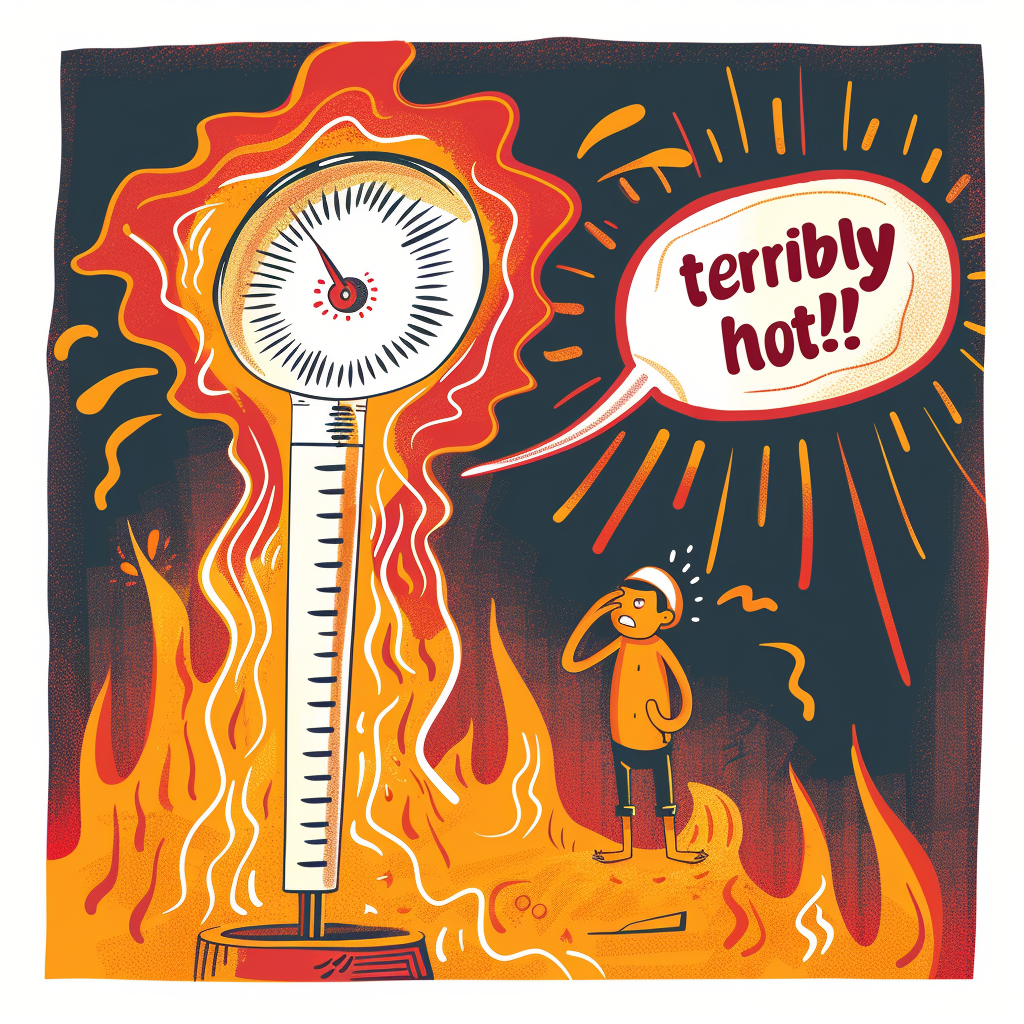Terribly
Definition
Terribly is an adverb used to describe the extent or degree of a particular action or adjective, often indicating a high degree or to a distressing extent. It can also serve as an informal intensifier.
Parts of Speech
- Adverb
Pronunciation
American English
- IPA Pronunciation: /ˈtɛrəbli/
- Respelling: TER-uh-blee (with "TER" as in "terrible," "uh" as a schwa sound like the 'a' in "sofa," and "blee" as in "glee")
British English
- IPA Pronunciation: /ˈtɛrəbli/
- Respelling: TER-uh-blee (similar to American English, with "TER" as in "terrible," "uh" as in "sofa," and "blee" like in "glee")
In both dialects, "terribly" is pronounced with the primary stress on the first syllable, "TER." The word is consistent across both American and British English, highlighting the straightforward nature of its phonetic realization.
Etymology
The term "terribly" is derived from the adjective "terrible" which traces its roots to the Latin word terribilis, from terrēre meaning ‘to frighten’. The suffix "-ly" was added to convert it to an adverb, indicative of manner.
Derivatives
- Terrible (adjective)
- Terrify (verb)
- Terrifying (adjective)
- Terrific (adjective)
- Terrified (adjective)
Synonyms
- Horribly
- Awfully
- Dreadfully
Antonyms
- Wonderfully
- Marvelously
- Splendidly
Usage
The word "terribly" can be used to describe something done to an extreme or alarming degree or to intensify a meaning colloquially.
Related Terms
- Terrify
- Horribly
- Awfully
Detailed Definition
Adverb
- To a high degree: Used to emphasize the degree or extent of a particular situation, action, or adjective.
- Example: He was terribly upset after hearing the news.
- Distressing or alarming extent: Signifying a distressing, alarming, or negative extent or degree.
- Example: The house was in a terribly neglected state.
- Informal Intensifier: Used informally as an intensifier for adjectives or other adverbs.
- Example: That's a terribly good idea you've come up with.
Note
The word "terribly" can be used in both positive and negative contexts, depending on how it is applied:
- In a negative context, "terribly" is an adverb used to emphasize the severity or seriousness of something bad or unpleasant. For example, "He was terribly injured in the accident" or "The weather was terribly bad for the picnic."
- In a positive context, which is often colloquial or informal, "terribly" can be used to intensify a positive adjective in a way that is similar to "very" or "extremely." For example, "She was terribly clever" or "We were terribly excited about the news."
terribly



🇨🇳 Mandarin
- 很 (hěn): very, terribly
- IPA: /xən˧˥/
- Respelling: hen
- 可怕地 (kě pà dì): frighteningly, terribly
- IPA: /kʰɤ˥˩ pʰa˨˩˦ ti˨˩˦/
- Respelling: kuh pah dee
🇮🇳 Hindi
- बहुत (bahut): very, terribly
- IPA: /bəhʊt̪/
- Respelling: bahoot
- डरपोक तरीके से (dar pok tareeke se): fearfully, terribly
- IPA: /d̪ər pok t̪əriːke se/
- Respelling: dar pok tah-ree-keh seh
🇪🇸 Spanish
- Terriblemente: terribly, dreadfully
- IPA: /te.ri.bleˈmen.te/
- Respelling: teh-ree-bleh-men-teh
🇫🇷 French
- Terriblement: terribly, awfully
- IPA: /tɛʁ.ʁi.blə.mɑ̃/
- Respelling: ter-ree-bleh-mahn
🇸🇦 Modern Standard Arabic
- بشكل فظيع (bishaakil fadhii3): terribly, horribly
- IPA: /biːʃaːkil faðˈʔiːʕ/
- Respelling: bee-shaa-kil fadh-ee'
🇧🇩 Bengali
- ভয়ানকভাবে (bhoyanokbhave): terribly, horrifyingly
- IPA: /bʱɔjanɔkbʱabe/
- Respelling: bhoy-a-nok-bha-veh
🇷🇺 Russian
- Ужасно (uzhasno): terribly, awfully
- IPA: /uˈʐasnə/
- Respelling: oo-zhas-nuh
🇵🇹 Portuguese
- Terrivelmente: terribly, dreadfully
- IPA: /tɛʁiˈvɛlmẽtʃi/
- Respelling: teh-ri-vel-men-chee
🇮🇩 Indonesian
- Sangat: very, terribly
- IPA: /saŋat/
- Respelling: sang-at
🇩🇪 German
- Schrecklich: terribly, horribly
- IPA: /ˈʃʁɛklɪç/
- Respelling: shrek-lish
🇯🇵 Japanese
- ひどく (hidoku): terribly, badly
- IPA: /çido.ku/
- Respelling: hee-do-ku
🇻🇳 Vietnamese
- Khủng khiếp: terribly, horribly
- IPA: /xʷɪŋ˨˩ khiəp˧˧/
- Respelling: khuung kheep
🇰🇷 Korean
- 끔찍하게 (kkeumjjikhage): terribly, horribly
- IPA: /k͈ʌm.dʑik̚.ha.ge/
- Respelling: kkeum-jjik-hah-geh
🇹🇷 Turkish
- Korkunç bir şekilde: terribly, in a dreadful manner
- IPA: /koɾkunt͡ʃ biɾ ʃekilde/
- Respelling: kor-kunch beer shek-il-deh
🇵🇰 Urdu
- خوفناک طور پر (khofnaak tor par): terribly, frighteningly
- IPA: /xɔːf.naːk t̪oːr par/
- Respelling: khof-naak tor par





